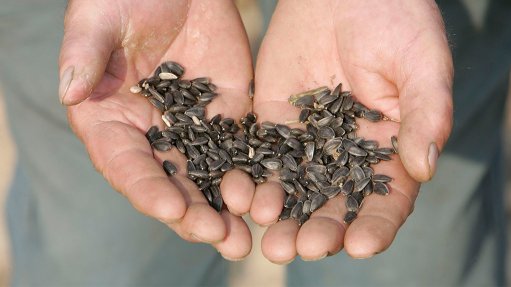
The Department of Energy (DoE), on Wednesday, published its draft position paper on the South African Biofuels Regulatory Framework, which included the mandatory blending regulations and a pricing framework, in the Government Gazette for public comment.
According to the document, the South African government had identified the biofuels industry as a potential major source of employment and economic development; however, despite the approval of the Biofuels Industrial Strategy in 2007, no single large-scale biofuels industry player had emerged, as had been targeted.
This was attributed to the fact that biofuels projects were, on their own, not financially attractive at the prevailing feedstock and crude oil or liquid fuel prices and, therefore, the DoE, in consultation with an interdepartmental Biofuels Task Team (BTT), had focused on the implementation, monitoring and refinement of the Biofuels Industrial Strategy to create a regulatory environment that is conducive to the production of biofuels.
The framework document stated that regulations regarding the mandatory blending of biofuels with petrol and diesel were among the tools deemed to be the most appropriate legal instrument to achieve the desired outcome.
Mandatory blending regulations, which were set to come into effect on October 1, 2015, would guarantee the uptake of all biofuels supplied by licensed biofuels manufacturers by compelling licensed manufacturers of petroleum products and their wholesaling arms to buy and blend all the biofuels made available by licensed biofuels manufacturers.
According to earlier reports, fuel producers would be required to blend a minimum of 5% biodiesel in diesel and between 2% and 10% of bioethanol in petrol.
Meanwhile, the framework document said an appropriate Biofuels Pricing Framework had also been created by the DoE, in conjunction with National Treasury and other economic departments, to financially incentivise the production of biofuels.
Biodiesel manufacturers would be granted a 50% general fuel levy exemption and would be entitled to accelerated depreciation on their manufacturing facilities and other tax incentives.
However, as a similar rebate could not be instituted for bioethanol, as it fell outside the fuel tax net, the DoE, together with National Treasury, had embarked on a process of developing an appropriate incentive mechanism for bioethanol producers.
Regulations relating to the licensing of manufacturers of biofuels, as well as criteria for the eligibility for government support were also included in the document.
Biofuels industry investor Mabele Fuels welcomed the publication of the framework, stating that, “once regulatory closure is achieved, we [will be] able to realise our long-standing commitment to develop South Africa's largest bioethanol refinery at a cost of R2.5-billion”.
Mabele added that, should the regulations be finalised quickly, its project would be able to progress to the construction phase, and be completed, in time to meet the October 2015 mandatory blending starting date.